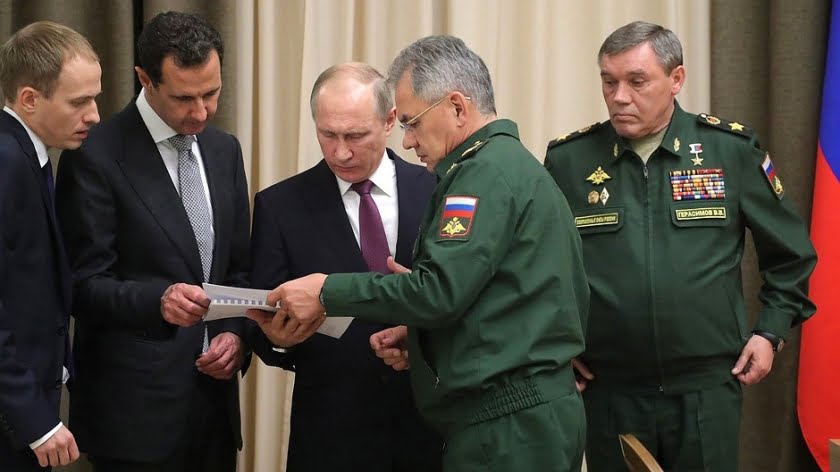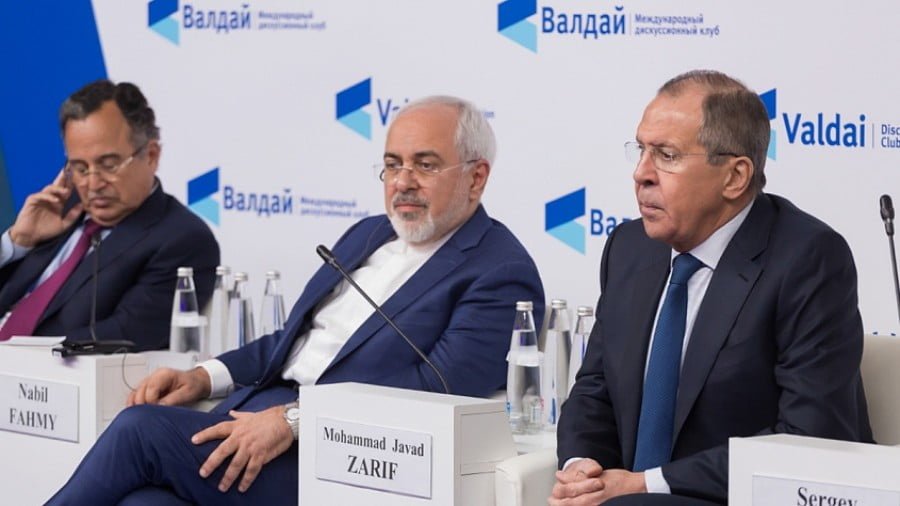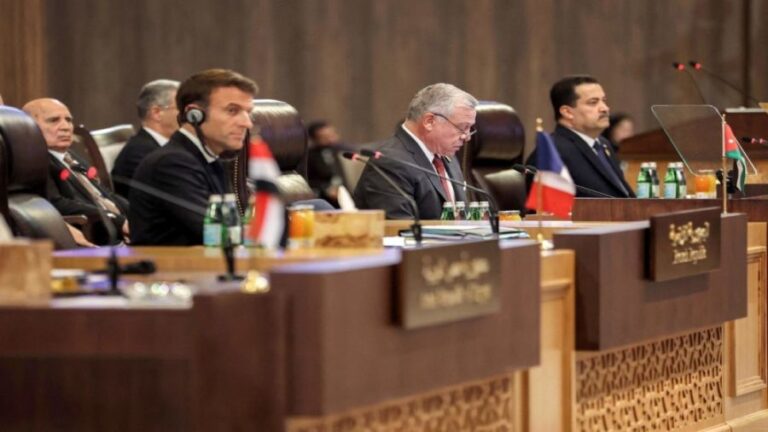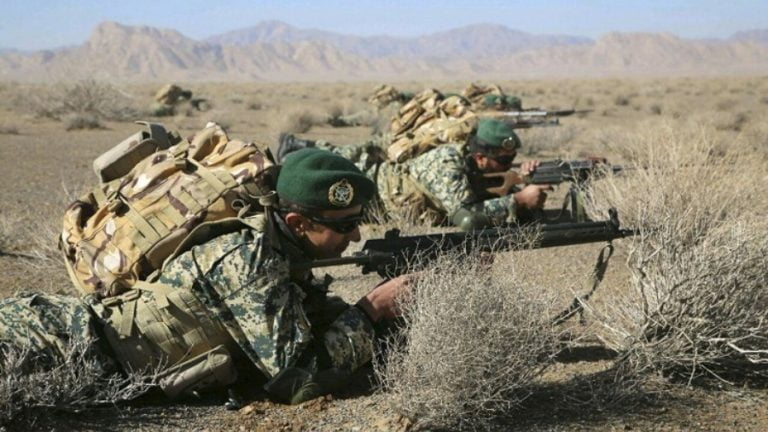Putin Reaffirmed Russia’s Willingness to Negotiate a “Political Transition” in Syria
Many in the Alt-Media Community were shocked to hear President Putin reaffirm Russia’s willingness to negotiate a “political transition” in Syria during his annual Q&A session, but Moscow actually hasn’t been shy about its intentions in this respect and wouldn’t have any problem in principle with Assad leaving office so long as this occurs in an orderly fashion and is portrayed as representing the will of the people.
The Controversial Quote
President Putin’s annual Q&A sessions are famous for covering a broad array of topics during the several straight hours that the Russian leader responds to the concerns of his people, and this year’s event didn’t disappoint. As could have been expected, the issue of the prolonged Syrian peace process was brought up by one of the participants who asked whether Russia was ready to cut a “grand deal” with the US in order to end the conflict. RT reported on Putin’s answer in the following way, which certainly shocked many in the Alt-Media Community who were under the mistaken impression that Russia’s 2015 anti-terrorist intervention was intended to support President Assad personally:
“Russia will not reach any agreement with the United States on the future of Syria at the cost of Syria itself or Moscow’s interests and principles, President Vladimir Putin has said. During his annual Q&A session on Thursday, a journalist asked Putin if there would be a “grand deal” with the US on Syria as the country begins to recover from years of hostilities and destruction.
“What do you mean ‘a grand deal’? Sounds like some commercial act. No. We don’t sell out our allies, our interests or our principles,” Putin said. He said that Russia is willing to negotiate a political transition in Syria with various stakeholders. “Can it be done? I believe it can, provided there is goodwill of everyone involved in the conflict.”
Putin highlighted Turkey and Iran as Russia’s immediate partners in resolving the Syrian crisis, but said countries like the US, Israel, Egypt, and Jordan have legitimate interests in what happens in Syria as do the European nations, which were hurt by mass migration triggered by it. “We have to work together on it,” he stressed.”
Although Putin attempted to reassure the audience that his country “doesn’t sell out its allies, its interests or its principles”, he didn’t actually articulate what either of those are, and then he quickly expressed is willingness to “negotiate a political transition in Syria with various stakeholders”. From the rest of his answer, it’s clear that he was referring to Turkey, Iran, “the US, Israel, Egypt, and Jordan”, as well as the “European nations”, all of whom he insisted have “legitimate interests in what happens in Syria”. All of this require some explaining for those who haven’t been following Russia’s moves in Syria all that closely over the years and didn’t realize that it never had a problem in principle with Assad leaving office as part of a Moscow-mediated “compromise” between all relevant stakeholders so long as it’s orderly and portrayed as representing the will of the people.
Russia’s Real Allies, Interests, And Principles
To begin with, Lavrov confirmed in May 2016 that “Assad is not our ally, by the way. Yes, we support him in the fight against terrorism and in preserving the Syrian state. But he is not an ally like Turkey is the ally of the United States.” It can be inferred from this that Russia’s only real ally in the conflict itself (but not necessarily the region) is the Syrian state, not Assad, and that its principled interests are in fighting terrorism and restoring regional stability, not preventing regime change per se. With this in mind, Putin’s comment makes a lot more sense since Russia doesn’t consider its willingness to “negotiate a political transition in Syria with various stakeholders” to be the same as “selling out its allies, its interests or its principles.” To the contrary, Moscow is apparently convinced that this move would strengthen the aforementioned.
Incorporating “Israel’s” Interests
Before going any further with that line of thought, it’s important to point out why “Israel” is included in the list of “various stakeholders” who have “legitimate interests in what happens in Syria”. Although it defies Alt-Media dogma in the strongest sense, Russia and “Israel” are actually allies nowadays, so much so that one can even speak of them as a singular strategic entity through the author’s neologism of “Putinyahu’s Rusrael“. The evidence for that assertion is contained in the previous hyperlink and was reinforced most recently when Presidential Spokesman Peskov described next week’s unprecedented meeting in Jerusalem between the Russian, “Israeli”, and American National Security Advisors as “a very important contact” that will allow all sides to “have a vital exchange of views on the situation in the region, namely the Middle East settlement, the settlement process in Syria and other issues, which they consider necessary to discuss.”
It’s important for Russia to know exactly how “Israel” wants the settlement process in Syria to proceed because its Ambassador to the self-proclaimed “Jewish State” himself publicly tweeted earlier this month that “I am convinced that the Russian foreign policy serves security interests of both Russia, Israel”. Prior to that, Ministry of Foreign Affairs spokeswoman Zakharova promised that her country “will continue to provide the appropriate good services and mediation in future” between long-running enemies “Israel” and Syria, which therefore frames the upcoming National Security Advisor summit as an opportunity for “Putinyahu’s Rusrael” to calibrate its approach to the Arab Republic together with the US, which could altogether increase the chances for Moscow’s much-sought-after “New Detente” if they’re successful. More than likely, the three will discuss the details of a quid pro quo whereby Russia’s interlocutors accept Assad remaining in office for the short term in exchange for the “phased withdrawal” of Iranian forces from the Arab Republic.
Political Reforms Or Color Revolution?
Putin’s words about his country’s willingness to “negotiate a political transition in Syria with various stakeholders” (such as Assad’s “Israeli” and the American enemies) weren’t insincere “diplomatic talk” for the cameras either since he signaled as recently as last week that the country must urgently implement reforms in order to stabilize the region. His exact statement at the Conference on International and Confidence-Building Measures in Asia (CICA) was that “We believe that stabilizing the situation in Syria is crucial for ensuring security in our region. It is important to pave the way for political reforms in the country as quickly as possible.” The obvious implication is that the failure to promulgate “political reforms” would serve as an obstacle to ensuring the broader region’s security, especially his “Israeli” ally’s, and his latest comment during his televised Q& A session makes it clear that one of these “reforms” should entail a successful Russian-mediated “political transition”.
Since Assad isn’t Russia’s “ally” and it doesn’t have any “interests” or “principles” in having him remain in office for the sake of it, Putin doesn’t have any compunctions about ensuring his removal so long as it’s done orderly in order to avoid replicating the chaotic Libyan pretext and is portrayed as having the support of the population. This outcome could realistically be achieved in one of two possibly interconnected ways: a clause in the forthcoming constitution approved by the people’s representatives and/or a Color Revolution (which could give off the optics of “legitimizing” the former if carried out in conjunction with it). It’s important to remind the reader that the author previously pointed out that oil-rich Russia’s refusal to send energy relief during Syria’s fuel crisis two months ago was probably intended to provoke grassroots anti-government sentiment and eventually pave the way for a Russian-cultivated “deep state” figure to replace Assad, so that second-mentioned scenario wouldn’t really be all that surprising in hindsight if it ever transpires.
Concluding Thoughts
Far from intending to reinforce Assad’s presidency, Russia’s 2015 intervention increasingly looks as though it was meant to facilitate his eventual removal from office in an orderly and “publicly plausible” “face-saving” way as part of Moscow’s regional “balancing” strategy in order to one day clinch a “New Detente”. Putin and his representatives have sent more than enough signals to confirm that “Israel” is Russia’s real regional “ally”, not Assad, and that its “interests” and “principles” lay with ensuring its security from the supposed “threat” that the Syrian leader’s decision to invite Iranian military forces into the country poses to the self-proclaimed “Jewish State”. As such, it’s completely logical why Russia would want to “negotiate a political transition in Syria with various stakeholders”, first and foremost among them “Israel” and the US, meaning that the upcoming trilateral National Security Advisor summit in Jerusalem will probably determine Assad’s fate in one way or another.
By Andrew Korybko
Source: Eurasia Future







